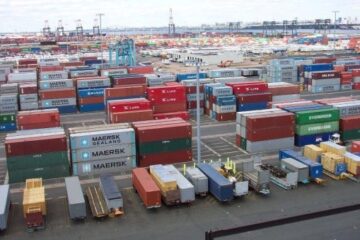
Former Nigerian Ambassador to the Scandinavian countries, Godknows Igali, has decried the poor reading culture among Nigerians.
He noted that the country was gradually losing this to modernism.
Amb. Igali stated this in Abuja on Wednesday at a reading colloquium with the theme, “Appraising the Aesthetics of Reading Culture in Nigeria”.
The News Agency of Nigeria (NAN) reports that Igali is the former Nigeria’s Ambassador to Sweden, Denmark, Finland and Norway.
He said that reading was beyond relating with ideas written with ink on paper, adding that man had always read before the advent of technology.
“The whole idea of reading has been from the beginning of history. I disagree with those who believe that reading is only when you put ideas on ink and paper.
“Man has always read but now gradually, reading culture has been taken over by modern society.
“In the past, we took reading so importantly, now reading is disappearing with the evasion of technology.
“In sub-Saharan Africa, most people do not read as much as they ought to, while some other societies are also losing the culture of reading,” he said.
Igali, therefore, advised Nigerians to cultivate reading habit, adding that such would promote knowledge and history of the society.
Mrs Theresa Tobuyei, the author of the book titled, “GASP,” said the book was a summary of the devastating effect of years of ethnic crisis that rocked Warri in Delta.
Tobuyei, a Bayelsa-based lawyer, said the crisis recorded casualties between 1997 and 2003, which attracted the attention of international peacekeeping and human rights bodies around the globe.
“The book titled, “GASP,” was written to bring out the devastating effects of the crisis, and the lasting horrible memories it has had on the lives of victims and other people that witnessed it.
“It was in a bid to appraise the negative consequences of the violence in the light of the active and passive conflicts still plaguing the Nigerian state, Africa and the world, that I wrote GASP.
“It is a literary piece that focuses on the consequences and psychological issues that arose from the scars inflicted on the people, especially marginalised groups.
“Such groups; which include, children, young people and women, in the times of crisis, wars and armed conflicts, around the world.
“GASP is a piece of literature that unearthed the harsh realities of how, even decades after the end of active violence, the victims still struggle to embrace their now-tainted lives,” she said.
The author explained that GASP was a fictional tale about some young girls, who physically witnessed the brutality of the Warri crisis; with each of them losing a principal member of their families.
She said the story, as contained in the book, captured how the girls were separated by the circumstances of life.
“Also, the book, displayed how each of the girls navigated their way through life, while nursing the scars that the crisis left behind.
“The book considered other societal vices, like electoral and domestic violence, bullying, sexual assault, child abandonment, displaying the travails and triumphs of her characters,” she added.



